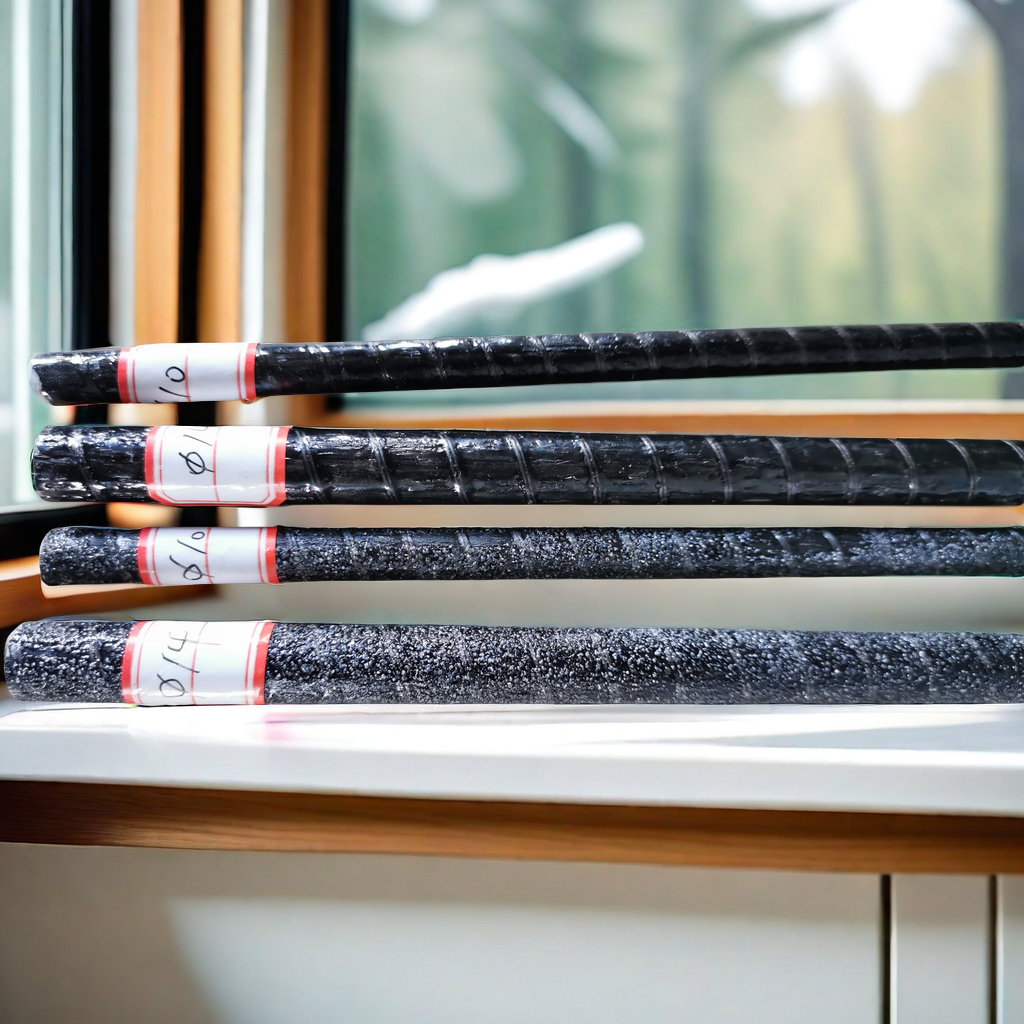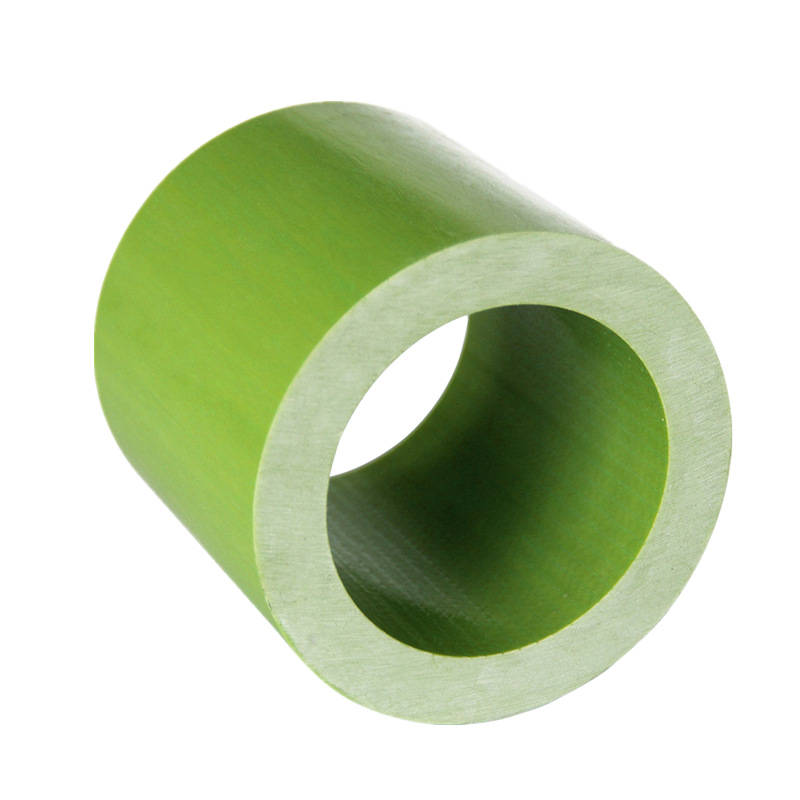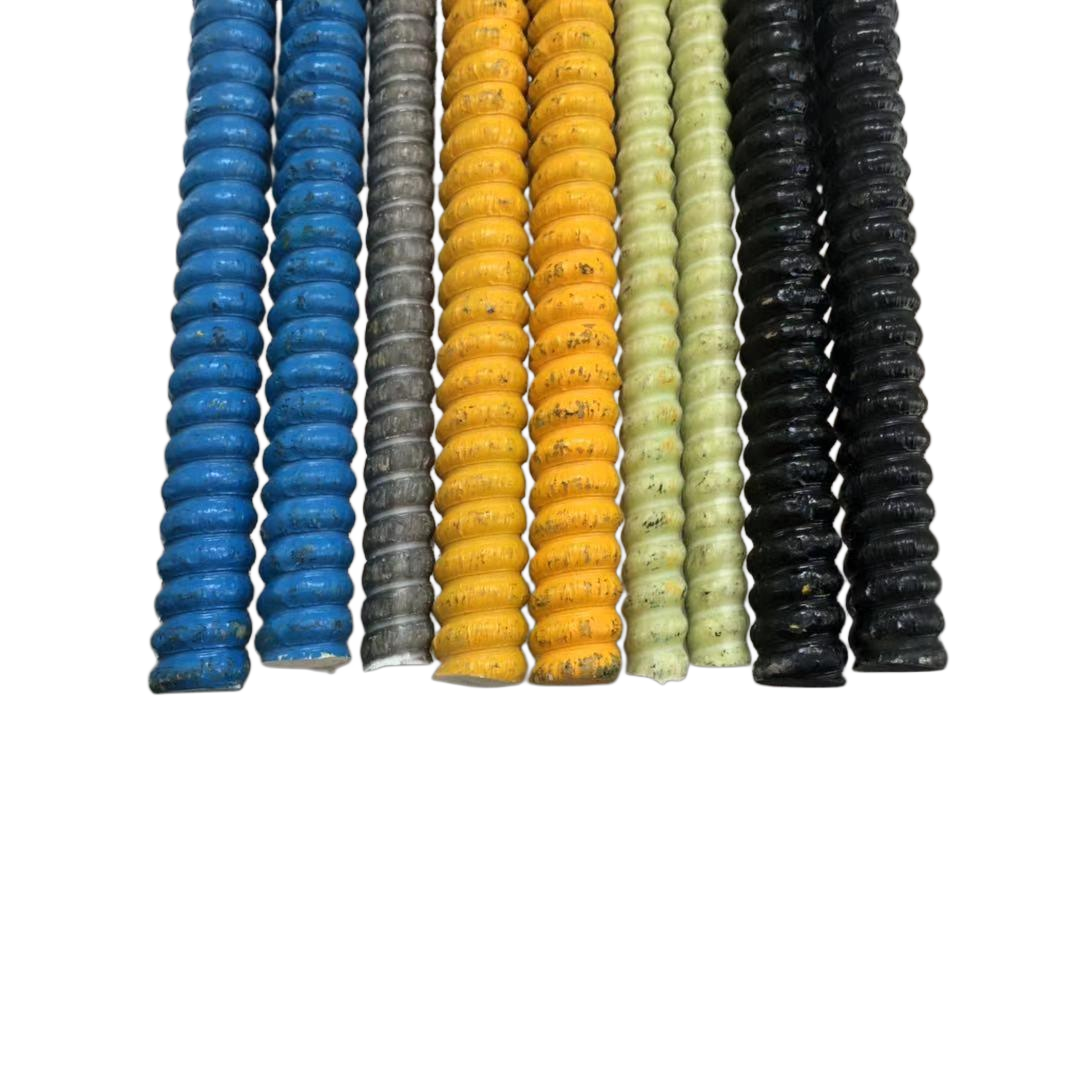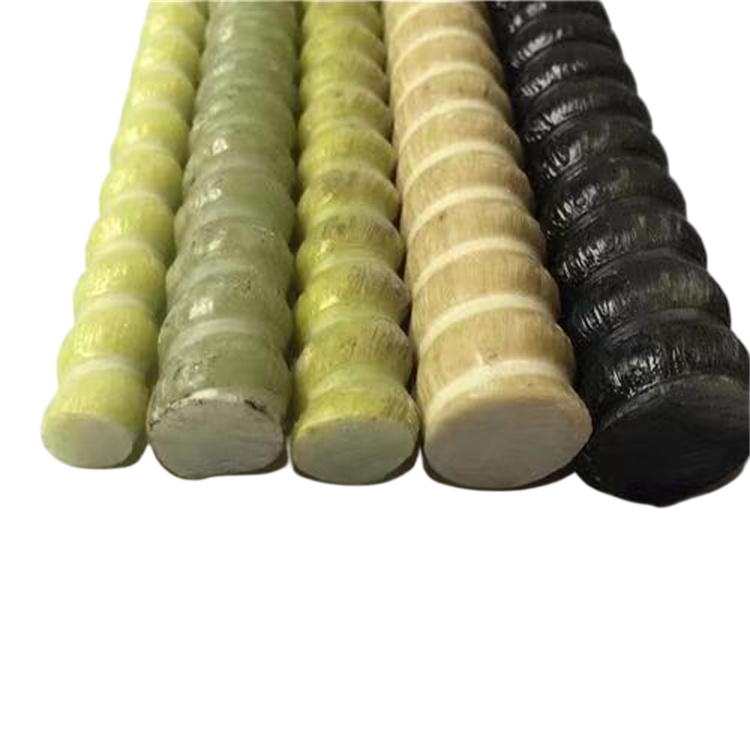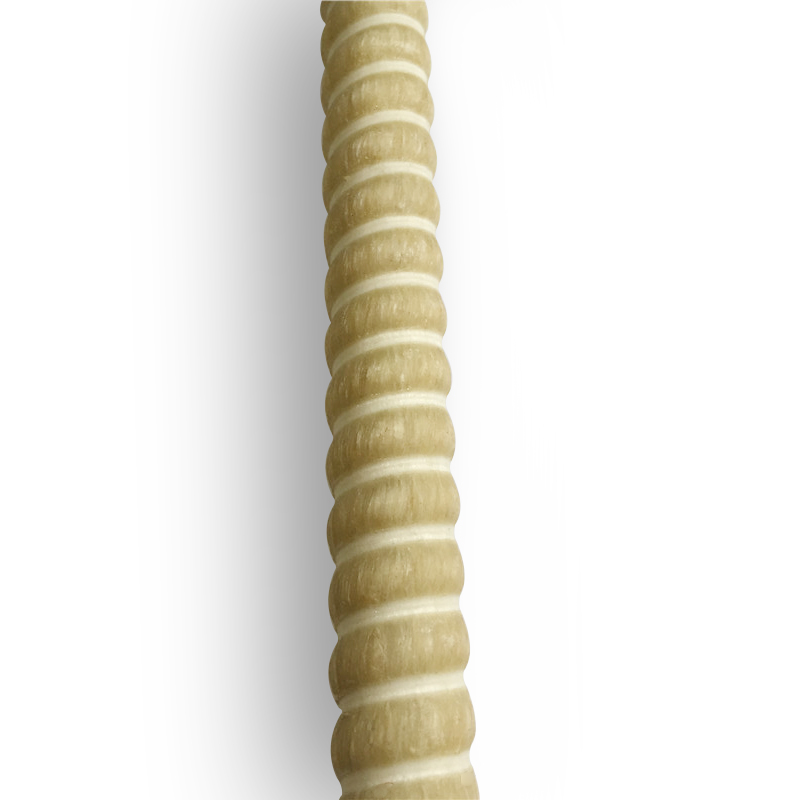Introduction
Fiberglass bolts have emerged as a revolutionary component in the field of engineering and construction. These bolts, known for their exceptional strength-to-weight ratio, are transforming how structures are designed and built. Unlike traditional metal bolts, fiberglass bolts offer a unique combination of durability, corrosion resistance, and thermal insulation. This article delves into the intricacies of fiberglass bolts, exploring their properties, applications, and the underlying science that makes them a superior choice in modern engineering. For comprehensive insights on the various types of fiberglass bolts, refer to the fiberglass bolts catalog.
Properties of Fiberglass Bolts
Fiberglass bolts are composed of glass fiber reinforced polymers (GFRP), which imbue them with remarkable mechanical properties. The high tensile strength of fiberglass, combined with its low weight, makes these bolts ideal for applications where load-bearing capacity is critical yet weight savings are desired. Furthermore, fiberglass bolts exhibit excellent resistance to corrosive environments, a feature that is particularly beneficial in industries exposed to harsh chemicals or maritime conditions.
Mechanical Strength
The mechanical strength of fiberglass bolts is derived from the glass fibers embedded within a polymer matrix. Studies have shown that the tensile strength of fiberglass bolts can reach up to 1,200 MPa, rivaling that of high-grade steel bolts. This strength is maintained over a wide range of temperatures, making them suitable for use in extreme environmental conditions.
Corrosion Resistance
Corrosion is a significant issue with metal bolts, leading to structural degradation and increased maintenance costs. Fiberglass bolts, however, are inherently resistant to rust and chemical corrosion. This property stems from the inert nature of the polymer matrix and glass fibers, which do not react with most chemicals. As a result, fiberglass bolts are preferable in chemical plants, marine applications, and any environment where corrosion is a concern.
Applications of Fiberglass Bolts
The unique properties of fiberglass bolts have led to their adoption across various industries. Their use enhances structural integrity while reducing maintenance requirements. Below are some key applications where fiberglass bolts have made significant impacts.
Construction and Infrastructure
In the construction industry, fiberglass bolts are used for reinforcing concrete structures, bridges, and tunnels. Their non-conductive nature makes them suitable for use in buildings where electromagnetic transparency is required. Additionally, the lightweight nature of fiberglass bolts reduces the overall weight of structures, allowing for innovative architectural designs and cost savings in foundation requirements.
Marine and Offshore Engineering
Marine environments are notoriously harsh on materials due to saltwater corrosion. Fiberglass bolts excel in such conditions, providing long-lasting fastening solutions on ships, docks, and offshore platforms. Their corrosion resistance reduces the need for frequent replacements and maintenance, ensuring safer and more reliable marine operations.
Electrical and Telecommunication Industries
The non-conductive properties of fiberglass bolts make them ideal for electrical applications. They are commonly used in the installation of insulating ladders, transformers, and support structures where electrical conductivity must be minimized. This enhances safety and efficiency in electrical infrastructure projects.
Comparative Analysis with Traditional Bolts
While steel bolts have been the industry standard for decades, fiberglass bolts offer several advantages that are hard to overlook. A comparative analysis reveals the following key differences:
Weight Considerations
Fiberglass bolts are significantly lighter than their steel counterparts, weighing approximately one-quarter as much. This weight reduction is crucial in applications where load is a critical factor, such as aerospace and automotive industries.
Thermal and Electrical Insulation
Unlike metal bolts, fiberglass bolts are excellent insulators against heat and electricity. This property makes them indispensable in environments where thermal or electrical conductivity could pose risks or interfere with operations.
Durability and Longevity
The corrosion resistance of fiberglass bolts translates to longer service life and reduced maintenance costs. While steel bolts may corrode and weaken over time, especially in aggressive environments, fiberglass bolts maintain their integrity, ensuring sustained performance.
Installation and Handling
The installation of fiberglass bolts requires consideration of their material properties. Their lightweight nature simplifies handling and reduces the risk of injury during installation. However, proper tools and techniques are essential to prevent damage to the bolts.
Cutting and Drilling
Fiberglass bolts can be cut and drilled using carbide-tipped tools. Care must be taken to avoid splintering, and protective equipment should be worn to prevent inhalation of fine fibers. The use of diamond-coated tools can further enhance the quality of cuts and holes.
Threading and Fastening
Threaded fiberglass bolts are manufactured with precision to ensure compatibility with standard nuts and washers. When fastening, torque specifications must be adhered to, as overtightening can cause stress fractures in the composite material.
Economic Considerations
While fiberglass bolts may have a higher initial cost compared to traditional steel bolts, the long-term economic benefits are substantial. The reduced need for maintenance, replacement, and the associated labor costs contribute to overall project savings. Additionally, the extended lifespan of fiberglass bolts enhances the return on investment.
Cost-Benefit Analysis
A detailed cost-benefit analysis indicates that projects employing fiberglass bolts can experience up to a 20% reduction in total lifecycle costs. This is attributed to the combination of durability, reduced maintenance, and longevity of the bolts.
Case Studies
Several high-profile projects have successfully integrated fiberglass bolts, showcasing their practical advantages.
Bridge Construction in Coastal Areas
In coastal bridge construction, fiberglass bolts have been used to combat the corrosive effects of saltwater. The Tavolara Bridge project demonstrated that using fiberglass bolts extended the structure's expected lifespan by 30 years compared to traditional materials.
Mining Industry Applications
The mining sector has adopted fiberglass bolts for rock bolting and ground support. The non-corrosive and non-conductive nature of the bolts enhances safety in underground mines, reducing the risk of electrical hazards and structural failures.
Environmental Impact
Fiberglass bolts contribute positively to environmental sustainability. Their corrosion resistance means fewer replacements and less material wastage over time. Additionally, fiberglass production has a lower carbon footprint compared to steel manufacturing processes.
Recyclability
Current research is focused on improving the recyclability of fiberglass materials. Though challenging, advancements are being made in mechanical recycling techniques that can repurpose fiberglass composites into new products, further enhancing their environmental credentials.
Challenges and Limitations
Despite the numerous advantages, fiberglass bolts also present certain challenges that need to be addressed.
Material Brittleness
Fiberglass materials can exhibit brittleness under specific stress conditions, particularly impact loads. This necessitates careful design consideration and may limit their use in applications where impact resistance is crucial.
Temperature Limitations
While fiberglass bolts perform well under a range of temperatures, extreme high-temperature environments can affect the polymer matrix, leading to reduced mechanical properties. For applications involving high heat, alternative materials may be more appropriate.
Future Developments
Ongoing research and development aim to enhance the performance characteristics of fiberglass bolts. Innovations in resin formulations and fiber technologies hold the promise of overcoming current limitations.
Nanocomposite Enhancements
Incorporating nanomaterials into the polymer matrix can improve mechanical strength and thermal stability. This could expand the applicability of fiberglass bolts into areas previously unsuitable due to material limitations.
Sustainable Materials
The development of bio-based resins and recyclable fibers is a key area of focus. These advancements aim to reduce the environmental impact of fiberglass bolt production and disposal.
Conclusion
Fiberglass bolts represent a significant advancement in fastening technology. Their unique combination of strength, lightweight, corrosion resistance, and non-conductivity offers substantial benefits over traditional metal bolts. As industries seek materials that improve performance while reducing environmental impact, fiberglass bolts are poised to play an increasingly vital role. For further exploration of fiberglass bolts and their applications, visit our detailed section on fiberglass bolts.

















